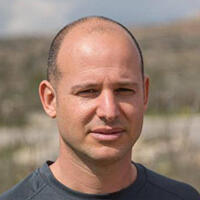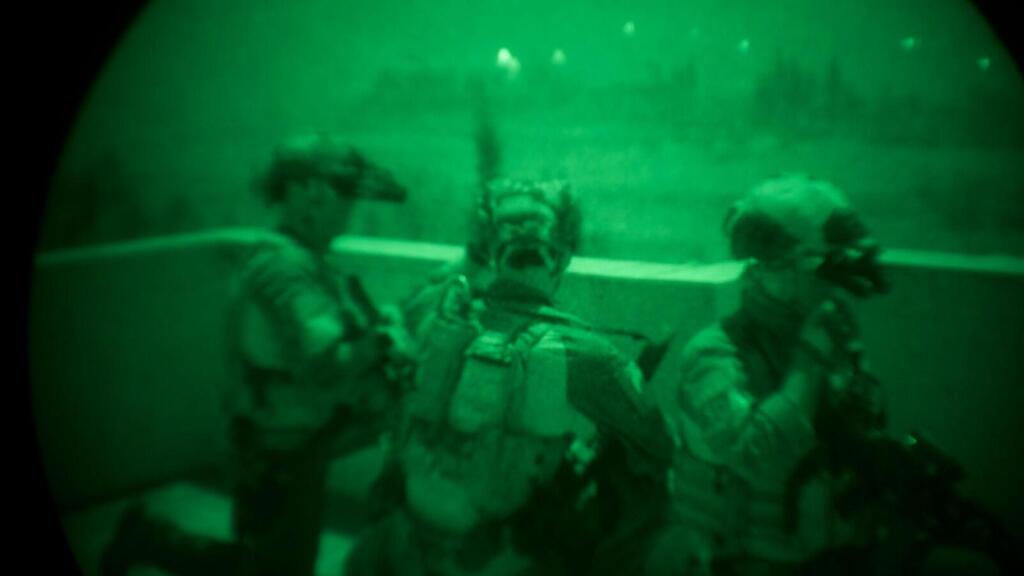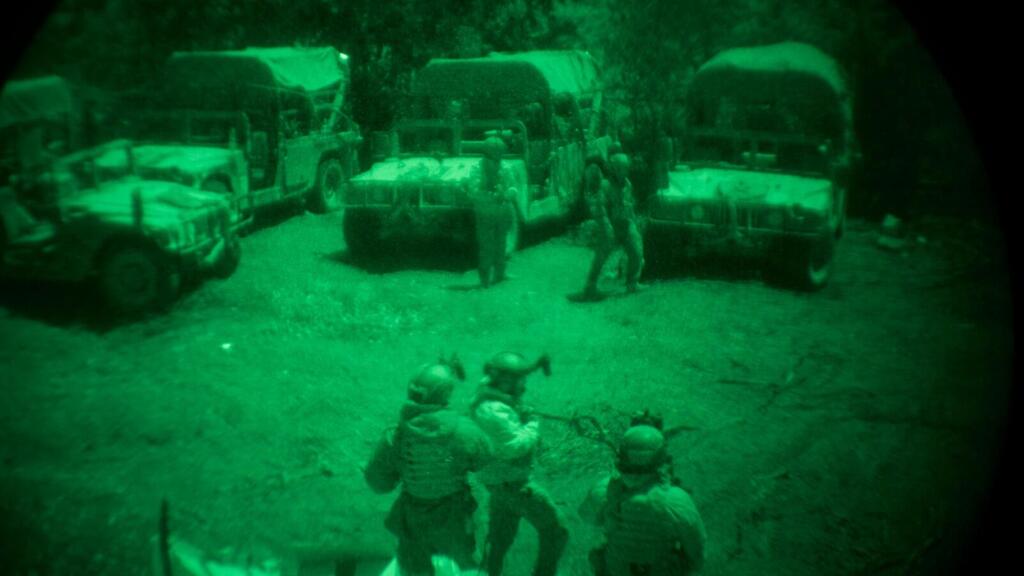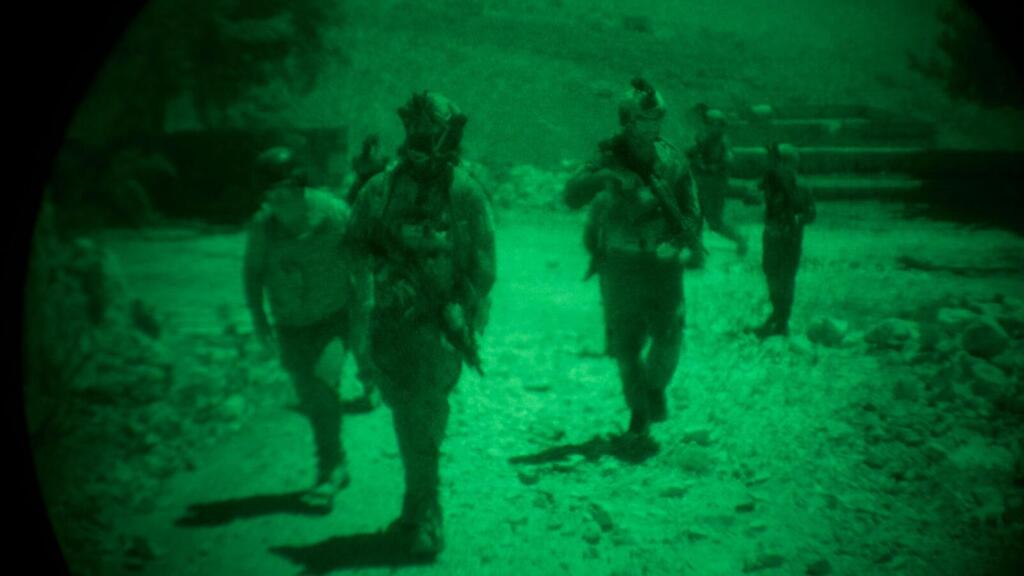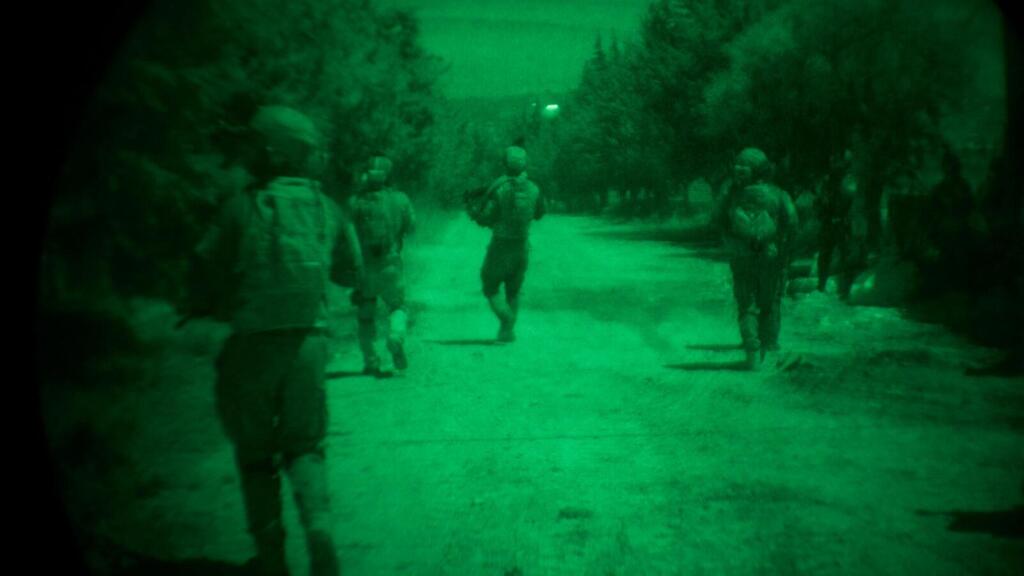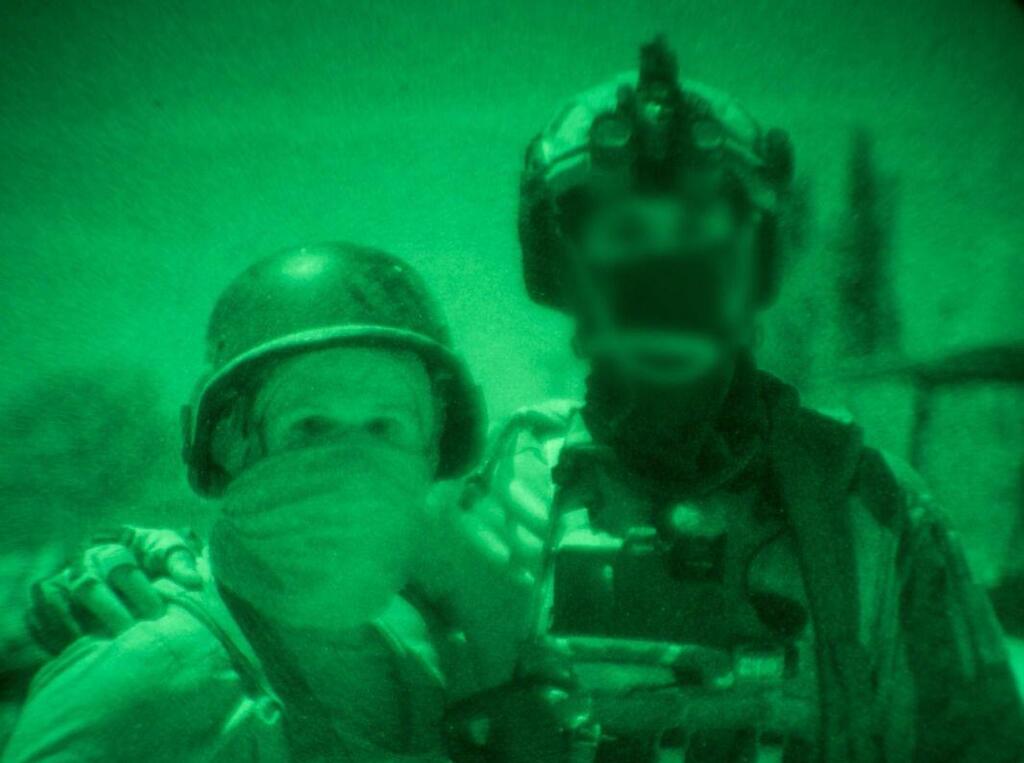Getting your Trinity Audio player ready...
"The darkness is our ally," says Lt. Col. A., commander of the IDF Commando Brigade’s Duvdevan unit. He sits on a couch in the middle of a children’s room inside a luxurious Lebanese estate in a village overlooking Israel's northern communities.
Around him, his soldiers are fully equipped, carrying ammunition, weapons and specialized gear. The windows are covered and a thick fabric carpet blocks any light entering the room. "Even the smallest flicker is an immediate threat of anti-tank fire into the compound," explains one of the soldiers.
On the table in the center of the room stands a small projector displaying maps and operational plans on the wall. Conversations are held in hushed tones and the cold is barely noticeable due to the crowded space.
The tension and alertness are palpable among the soldiers, who clearly understand where they are. Lt. Col. A. tells me, "These are Duvdevan soldiers. You're at the deepest point the IDF has set foot in Lebanon. We'll launch the attack from here."
'I'm living a double life'
An hour earlier, we were still at the assembly point, which military censorship restrictions prevent me from specifying. In the convoy of Hummers, we used to enter, we met reservists, some of whom have been serving for over 250 days.
They’ve fought in all of the IDF’s active fronts. "I was in Gaza, fought with the unit in the West Bank and now we've come here," says a 40-year-old soldier, a married father of two young children who lives in Jaffa and works as an investment manager.
"My wife’s trying to keep the business afloat. It’s tough, but there’s no choice," he says. When I asked how he copes with so many reserve days in a year, he answered, "It’s not simple. I’m basically living a double life. These hands hold a weapon one moment, shaking as they fire in all directions and the next moment, they’re bathing my baby in the tub. It’s really hard to explain."
We boarded the Hummers and began our advance. But before that, let’s delve into Duvdevan’s role in the war. Considered one of the IDF's elite units, Duvdevan is part of the Commando Brigade and specializes in counterterrorism, operating in urban and densely populated areas using undercover tactics.
For years, the unit has proven itself critical, primarily operating in the West Bank. The soldiers carry out special missions, mastering unique techniques such as rapid movement between tightly packed buildings and operations under high-pressure conditions.
On October 7, 2023, the unit operated in the kibbutzim of Kfar Aza and Be'eri before spreading out to other communities on the Gaza border, where they engaged in battles against dozens of terrorists and rescued numerous residents from their homes. The unit then resumed intense operations in their familiar territory — the West Bank.
Alongside soldiers from Reserve Unit 6217, they conducted dozens of targeted missions, including eliminating terrorists face-to-face, uncovering and destroying bomb-making factories and an operational command center in the Jordan Valley and cornering terrorists holed up in buildings.
The unit eliminated the terror military leader of the village of Tubas and his predecessor in the months prior. They also thwarted numerous attacks including intercepting suspects en route to central Israel. They were responsible for neutralizing a terrorist carrying explosives and weapons as he moved from Jenin set to kill Israelis.
After their operations in the West Bank, the unit moved to Gaza, where they conducted missions at AL-Shifa and Nasser hospitals, carried out strikes in Khan Younis and Al-Shati camps, and arrived here a few days ago.
'We found a copy of Mein Kampf'
Duvdevan soldiers are now working to clear the area. They operate under the Commando Brigade, deployed across the region and functioning under the 91st Division, commanded by Brig. Gen. Shai Kalper.
The late-night drive into the area is conducted without lights. The unit's highly skilled drivers drive at high speeds in close convoy formation to minimize exposure to gunfire. Despite the fog and challenging terrain, they maintain minimal spacing — a true art.
We arrived at the house where the unit commander was based. Here, the houses are mansions — multi-story buildings used by Hezbollah terrorists for planting explosives, hiding rockets and storing equipment, all ready for combat. Some locations also include underground infrastructure.
As we left the house, we met two soldiers from Jerusalem, who wanted to share what they’d found in some of the buildings. "At first, we found only pictures of [Hassan] Nasrallah, which is expected. But later, we also found photos of [Ali] Khamenei and other Iranian officers.”
“It’s clear evidence of the connection," they said. "In one of the living rooms, we even found a copy of Mein Kampf, Hitler’s book. Parts were underlined and highlighted inside as if someone had studied it line by line. This is Nazism in its rawest and most blatant form," they added.
On the way to the second target, we spoke with H., the unit's deputy commander, who explained the unique challenges the soldiers face. "There’s no doubt the terrain and type of operations are different from what we’re used to in the West Bank," he said.
"In the West Bank, the buildings are densely packed and you move through alleys and fight accordingly. Most of the area is flat. The terrain in Gaza is similar. But here in Lebanon, it’s very mountainous and the distance between houses is greater,” he explained.
'We can’t underestimate this enemy'
“You need to move during the day and night while utilizing different methods from those we’re accustomed to. But the unit's soldiers are adept at this. At the end of the day, a soldier is a soldier.”
He added, "We can’t underestimate this enemy called Hezbollah. They adapt to us in real-time. They don’t attack immediately upon encountering us. They observe, gather fragments of information and then launch their assault. This happens during combat, but we adapt as well — and faster."
We reached the second building in the middle of the night. While I can’t detail the unit's special camouflage capabilities, it’s evident how difficult it is to determine if soldiers are inside. "This is part of our skillset — to integrate ourselves seamlessly into the surroundings," the unit commander explained at the building’s entrance.
"I also work with tanks here, which isn’t something I have in the West Bank, but you adjust to it quickly. Ultimately, our mission is to clear the village and the extensive firepower capabilities I have here help me achieve that,” he added.
Now, we’re boarding the Hummers for the journey back to Israel. The soldiers staying behind will continue their mission of clearing the area. Everyone speaks in terms of existential warfare and history, understanding they’re part of a significant moment for the country.
Yet, they have one simple request: "Let us do our job so the residents of the north can return to their homes as safely as possible."
Get the Ynetnews app on your smartphone:



